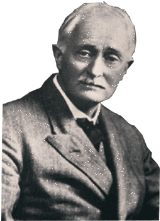
Some fun and interesting things in this week's London Review of Books and the TLS.
Mark Kishlansky writes a very good, succinct piece on the Restoration, reviewing a new massive two-volume history by Tim Harris. Kishlansky's review is negative, which is surely not something an author wants to read after spending 1100 pages on his subject (we'll see what other critical organs have to say about the books), and one thing he writes distracted me from the rest of his review:
Kings refused to justify their actions, or, as in the case of the secret Treaty of Dover (signed by Charles and Louis in 1670), were deliberately misleading about them. Divine-right monarchs didn't always care about the opinions of their citizens. Kings reigned, a concept so out of fashion as to be almost unrecoverable.
A ruler who believes he acts on God's wishes, who deliberately misleads, and who does what he does without reference to the opinions of even the majority of his people? Such a concept may be "unrecoverable" in the UK, but who in present-day America wouldn't offer a rueful little laugh at the suggestion that it's gone from the world entirely?
Also in this issue, Denis Feeney has a very good, verp penetrating piece on Ovid's exile years. He's reviewing Peter Green's new and excellent translation of Ovid's exile poems, but he takes the opportunity to examine many facets of Ovid's time at Tomis, at the furthest edge of the Roman world.
My only quibble? Feeney writes that Ovid's tragedy 'Medea' is "the only work of his that did not survive to the age of printing." This is hardly the case. Not only does Feeney ignore the raft of little or occasional poems alluded to in Ovid's extant works, but he overlooks the fact that Ovid himself mentions one other work of his we don't have, potentially the most interesting thing he ever wrote: a work in the language of Tomis. For me the idea has always been fascinating - the picture of this most cosmopolitan of poets, exiled from the greatest city in the world and fetched up at the ass-end of nowhere, but still compelled to write - and not only to write, but to seek an immediate audience, even if he had to learn an entirely new language to do it. There's no doubt at all that the world of literature is markedly less for the lack of the great works Ovid would have created if he'd been allowed to remain in Rome (or even if he'd been allowed to return). But even so, the exile poems are weird and sad and a little crazed and ultimately very beautiful, I think, though in a very bleak vein.
Over in the TLS, in addition to a long and masterful damnation by Brian Vickers of the new Oxford Complete Works of Shakespeare (after ten or fifteen paragraphs, reading it had all the visceral fascination of watching a bloodsport), there were two fun little bits.
The first was in the letters page, where Richard Boston writes in response to the disclosure last time that Poet Laureate John Masefield would always submit his poems with stamped, addressed envelopes - in case of rejection. Boston writes:
Near the end of Masefield's life, I was working for your predecessor, the late Arthur Crook, on the TLS. One day, A.P. Ryan, who had the not very onerous job of editing the Times's sole book page, sought our advice on what to do about the bard's latest contribution. Masefield had written about a royal visit to Australia. Unfortunately, the old boy had got his wires crossed.
The visit had been to Austria. An easy mistake: the names of both countries begin and end with 'A'. Easy solution: remove the 'al' from 'Australia'. This proved not to be enough. The people of Vienna would still have been not the only ones puzzled by the references to kangaroos and boomerangs.
This may well have been the only occasion on which the stamped addressed envelope had to be used. I have the idea that it may also have been, sadly, the last time Masefield sent in a poem. I do hope that someone, somewhere, somehow has a copy of the Australia poem.

I'd bet my last farthing this plea either turns up the long-lost Australia poem or turns up some egghead clarifying the poet's mistake. I'll keep you posted.
And of course there's the main attraction of the TLS, at least for me: the magisterial smackdown. This is not a sunny, bird-chirping book review where everybody is presumed to be doing their best and if you can't say something nice about somebody, you don't say anything at all. This is the NFL, and sometimes it can be delightful (like, for instance, if you hated your older brother and his book received just such a spanking).
Take the case of Lisa Chiu's new book When a Gene Makes You Smell Like a Fish - and other tales about the genes in your body
Jonathan Hodgkin spends two paragraphs of his three-paragraph review summarizing and describing, and then he finishes with this:
This survey of human genetics, written for a general audience, is readable and sometimes engaging, but it is carelessly written and inconsistent in the level of explanation used. Technical terms are introduced before being adequately explained, and several of the stories are left dangling unsatisfactorily, or ended with a labored pun. Chiu also misses some key points - for example, she writes about the discovery of FOX2P, the first candidate for the 'gene for language', but fails to mention one of its most exciting and suggestive properties, namely its remarkably rapid evolution. Better books of this type have been written, such as Matt Ridley's Genome and Armand Leroi's Mutants. When a Gene Makes You Smell Like a Fish has the advantage of being reasonably up to date, but otherwise there is not much to recommend it.
Hee.
The review stops, as they all do, just one step short of advising the author to go out and kill themselves.
Aside from those two wonderful publications, the only ITPP news comes from this morning's Metro, which has a one-paragraph (naturally) blurb enthusiing about World War Z. So now that all the STUPID people in Boston have been made aware of the book, it only remains for the Globe to tell all the ordinary people and the Phoenix to tell all the smart people. Fingers crossed ...

2 comments:
Hated brother's book gets panned by TLS? Do tell. (Maybe you've even got a juicy excerpt or two handy - either on paper or memorized like a catechism.)
Apparently it was quite a brilliant book! Makes it that much richer, doesn't it?
Post a Comment